1. Enhanced Sight

Imagine soldiers who wake up and see more than we ever could. They might spot heat signatures, track movement in total darkness, or magnify distant targets with ease. Scientists are exploring ways genetic enhancements and wearable technology could heighten human senses, creating a new kind of warrior. While the possibilities are fascinating, there is a question of how far is too far. A soldier seeing beyond normal vision may gain an advantage on the battlefield, but their sense of reality might also shift. The human experience could change in ways we are only beginning to understand.
2. Instant Healing

Imagine recovering from wounds almost instantly. Genetic modifications could help tissues repair faster or the immune system fight infections at an accelerated pace. Soldiers could return to the field in hours instead of weeks. While the promise of instant healing is exciting, it also comes with risks. Altering the body to heal faster might create long-term consequences no one can fully predict. The soldier may feel invincible in battle but might face unexpected complications later. The ability to bounce back quickly could redefine what it means to serve and how the human body responds to extreme stress.
3. Sleep-Free Drive

What if a soldier could stay alert for days without sleep? Advances in biology and cognitive science could allow warriors to remain awake and focused, eliminating fatigue during long missions. The promise of sleepless efficiency is tempting, especially in high-pressure situations, but there are hidden costs. Sleep affects memory, emotional health, and overall wellbeing. A soldier who functions without rest may excel on missions yet struggle with personal life or mental clarity afterward. Altering natural sleep cycles could have long-term consequences on physical and emotional health, creating a human who is more machine-like in their endurance than anyone ever imagined.
4. Neural Interface Link
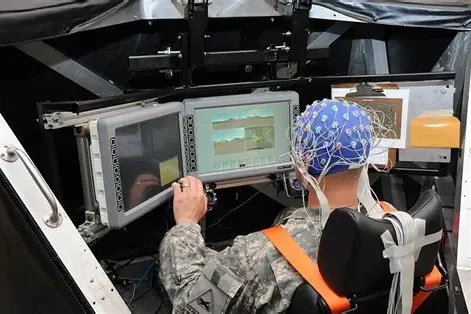
Imagine a soldier controlling machines with just a thought. Brain-computer interfaces could let them coordinate drones, vehicles, and battlefield systems directly from their mind. The technology is advancing fast and could change the way battles are fought. However, linking the brain to machines raises questions about privacy and identity. When thoughts control devices, where does the soldier end and the machine begin? While the potential for efficiency and precision is remarkable, the human mind may also feel distant from itself. Being connected in this way could improve performance but change the way a person experiences decision-making forever.
5. Adaptive AR Vision
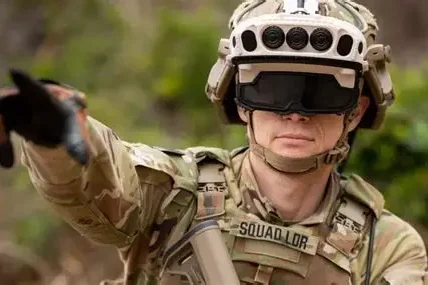
Picture a soldier seeing real-time information overlaid on their vision. Augmented reality could highlight enemy positions, track movements, or display environmental hazards directly in sight. This could make decision-making faster and missions more efficient. Yet relying on augmented vision could have drawbacks. Technology might fail or mislead, causing dangerous errors. The soldier might trust digital input more than their natural instincts. While enhanced vision offers incredible tactical advantages, it also challenges the way humans perceive and interpret the world around them. What was once instinctive could become programmed, creating a new kind of visual experience on the battlefield.
6. Genetic Resistance to Stress

Some soldiers could be genetically modified to resist extreme stress. Heat, cold, altitude, and chemical exposure might be endured with less strain. Such resilience could save lives and improve mission success. However, altering human biology comes with unknown consequences. A soldier genetically adapted to extreme conditions might find everyday life strangely taxing or disconnected from normal human experience. The long-term effects of such enhancements on mental and physical health remain uncertain. While these soldiers could perform beyond ordinary limits, there is a quiet cost in what it means to live a normal life and feel natural human emotions outside battle.
7. Exoskeleton Muscle Boost
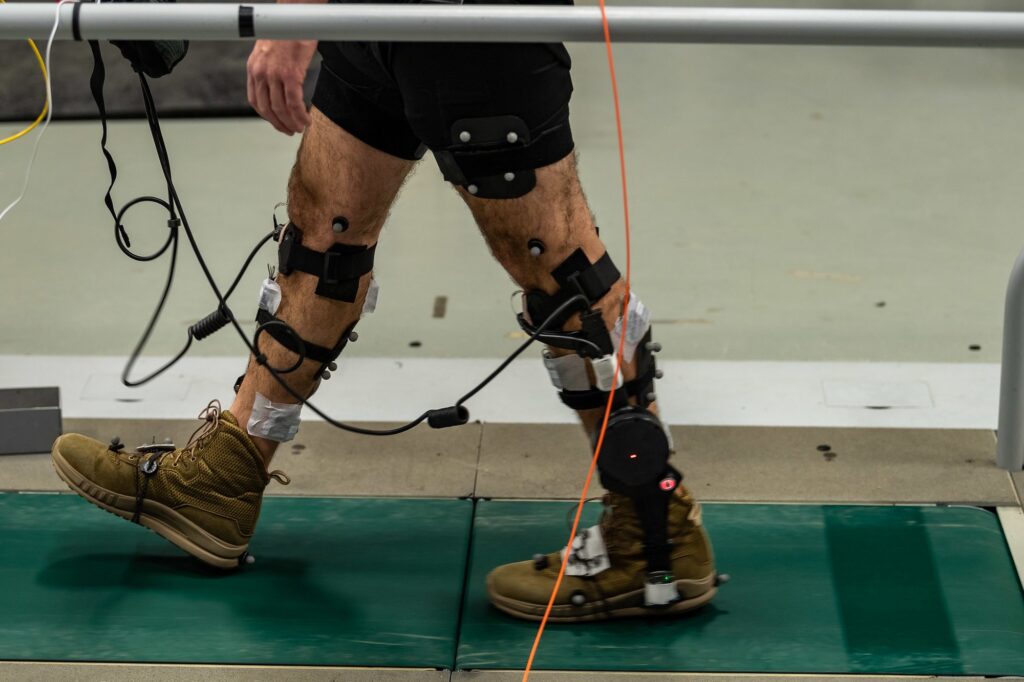
Imagine soldiers who can lift incredible weight or run at incredible speed. Exoskeletons and muscle-enhancing technology could turn ordinary humans into extraordinary physical performers. Strength and endurance would increase dramatically, improving battlefield performance and reducing fatigue. However, such augmentation could change the human body in ways that are hard to reverse. Soldiers might feel mechanical, or the pressures to constantly perform could become overwhelming. These enhancements raise questions about expectations and the physical limits of humans. While boosting strength is a tempting advantage, it could create soldiers who are physically capable but increasingly removed from their natural human experience.
8. Data Driven Mind
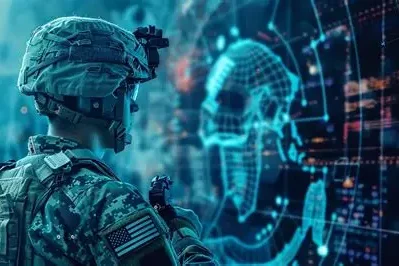
Imagine a soldier receiving real-time analytics directly to their mind. Augmented systems could process information faster, suggest strategies, and anticipate threats. This could transform decision-making in combat and reduce errors. However, reliance on technology could undermine a soldier’s personal judgment. Over time, intuition and critical thinking might be replaced by data-driven responses. The soldier becomes part human and part system, blending instinct with machine intelligence. While enhanced cognition offers tactical advantages, it also reshapes how humans think, react, and trust themselves. The line between natural thought and artificial assistance becomes harder to recognize, leaving questions about independence and identity.
9. Epigenetic Trauma Tracking

Imagine monitoring a soldier’s biological response to trauma on a molecular level. Epigenetic tracking could detect changes from chemical exposure, combat stress, or neurological strain. This might improve medical care and performance monitoring. However, it could also mean constant surveillance of a soldier’s body and private health data. Being monitored at such a deep biological level could affect personal freedom and mental wellbeing. While this technology could save lives, it raises questions about the boundaries between duty, privacy, and biology. Soldiers could be watched in ways previous generations never experienced, creating a new form of vulnerability even while enhanced.
10. Night Vision Genes
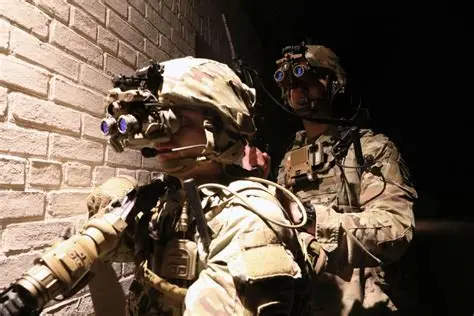
Imagine a soldier able to see in near total darkness. Genetic alterations could enhance low-light perception, giving tactical advantages at night. While this seems like a remarkable skill, it alters natural human perception and adaptation. Soldiers might feel disconnected from normal visual experiences when not in the field. What is exciting in combat could be disorienting in everyday life, creating a permanent shift in perception. Enhancing night vision blurs the line between human and modified human, showing that every advantage carries consequences. Soldiers might gain extraordinary capability but also a life viewed through a different lens than ordinary humans.
11. Emotional Dampening Control
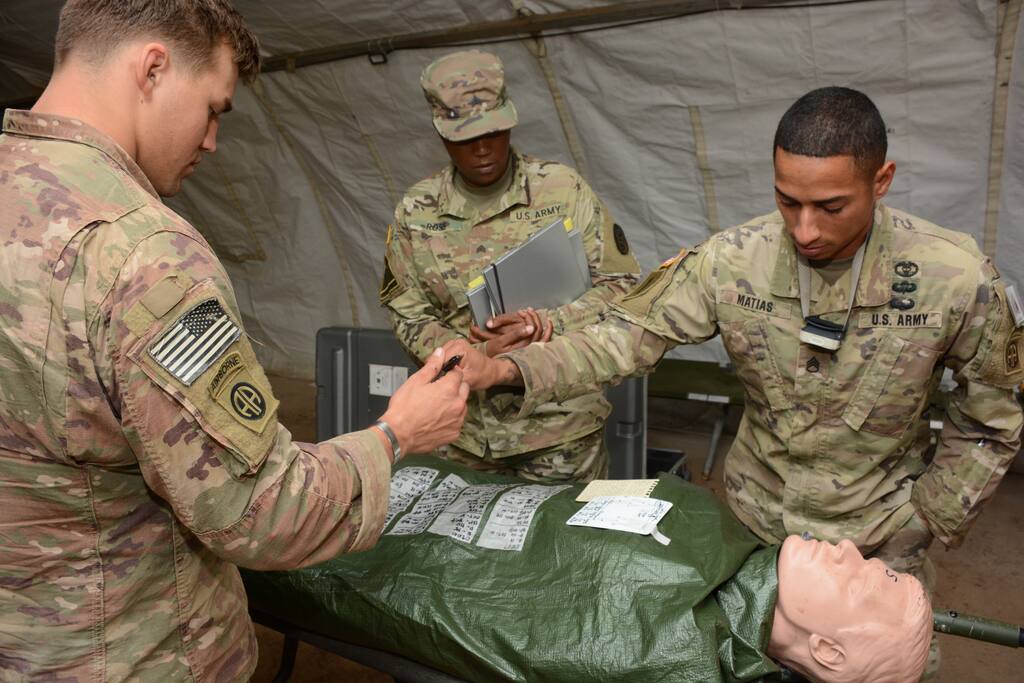
Imagine a soldier who feels less fear or stress in high-pressure situations. Modifying emotional responses could improve focus and performance under extreme conditions. Reducing fear might make dangerous missions more manageable. However, emotions are a core part of human identity, and dulling them could create unexpected psychological challenges. Soldiers might struggle to reconnect with everyday life or personal relationships. While emotional dampening could save lives in battle, it also risks altering the very nature of humanity. A soldier may perform flawlessly under fire yet feel strangely distant from normal emotional experiences, raising questions about long-term wellbeing.
12. Integrated Weapon Platforms
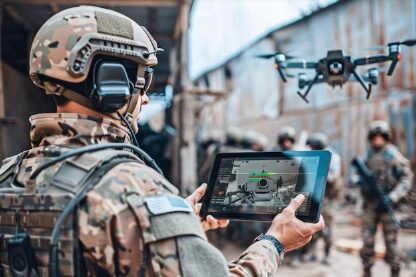
Imagine a soldier seamlessly operating weapons through implants and augmented systems. Integration could improve coordination, accuracy, and response times, transforming battlefield performance. However, this level of integration could place enormous pressure on soldiers to perform without mistakes. The human element becomes tightly intertwined with machines, raising questions about agency and accountability. Soldiers may feel more like extensions of technology than independent humans. While integrated systems offer impressive tactical benefits, they also risk creating a disconnect between the human mind and mechanical function, fundamentally changing the way soldiers interact with both technology and the environment around them.
13. Rapid Physical Reconfiguration
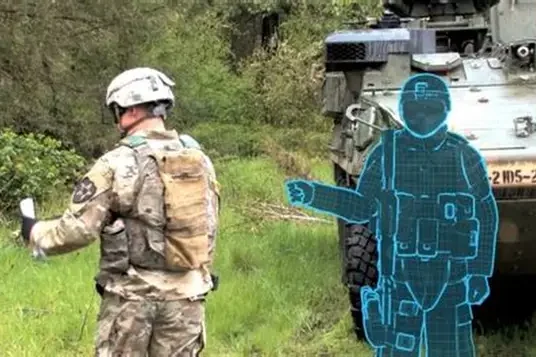
Imagine a soldier who can switch between high-intensity sprinting and long-duration endurance instantly. Genetic and biomedical enhancements could optimize metabolism for extreme physical performance. This could improve survival and mission success dramatically. However, constantly pushing the body into extreme modes may have long-term consequences. Soldiers may feel their natural physical limits slipping away, replaced by performance-driven optimization. While rapid adaptation enhances capabilities, it also alters the fundamental way the human body operates. The soldier’s identity may shift alongside their physical abilities, making ordinary life feel slow or unnatural compared to the engineered efficiency required on the battlefield.
14. Augmented Reality Training Memories
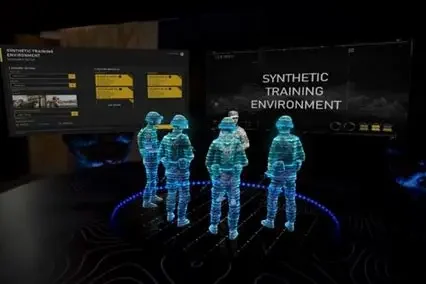
Imagine a soldier downloading battlefield experiences directly into memory through AR. Training could be accelerated, and skill acquisition could occur in hours instead of months. This is a remarkable efficiency, but it comes with questions about identity and authenticity. Soldiers might carry knowledge they never personally lived through, creating a gap between experience and understanding. Memories shaped by technology could affect decision-making, emotions, and personal growth. While augmented memory training offers tactical advantage, it may also change the way humans learn and process experience. The soldier becomes a repository of knowledge and experience not entirely their own, blending human with machine.
15. Bio Sensor Feedback
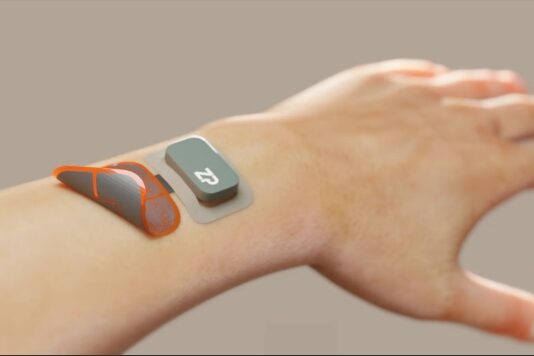
Imagine soldiers constantly monitored through biosensors tracking heart rate, stress levels, and brain activity. Commanders could intervene before fatigue or danger becomes critical. This might save lives and improve performance. However, constant monitoring could feel intrusive, reducing personal autonomy. Soldiers might struggle with the sense that their bodies are always observed and optimized by others. While biosensor feedback offers safety and efficiency, it also creates a persistent awareness of surveillance. The body becomes part of the operational system, blurring the lines between human experience and military expectations. Soldiers may feel both protected and trapped by their own biology.
16. Genetic Pain Reduction

Imagine reducing pain through genetic modification so injuries are less debilitating. Soldiers could continue missions despite wounds, improving effectiveness and survival. However, altering pain perception could create hidden dangers. Pain signals are essential for preventing serious injury, and reducing them could lead to unnoticed damage. Soldiers may perform better temporarily but pay a hidden price afterward. The human experience of touch and injury would change, creating uncertainty about health and recovery. While pain reduction could save lives in the short term, it also alters the way humans interact with their bodies and understand their limits, affecting identity and wellbeing.
17. Memory Editing

Imagine editing or suppressing traumatic memories from combat to improve recovery. Soldiers could experience reduced psychological harm and maintain mental performance. This sounds compassionate but could alter identity and self-awareness. Memories shape decisions, emotions, and personal growth. Modifying them could make soldiers more resilient yet also create gaps in their life story. The benefits of memory editing may come with unforeseen consequences, as experiences that define a person are removed or changed. Soldiers may be able to perform better under pressure but carry a version of themselves that is engineered for endurance rather than authenticity, raising ethical and emotional questions.
18. Permanent Soldier Identity

Imagine a soldier permanently augmented through genetics, AR, and biomedical enhancements. The body, mind, and abilities would be optimized for military service, creating unprecedented capability. However, living permanently in a modified state raises questions about identity, freedom, and personal life outside duty. Soldiers might excel in combat but struggle with civilian life, relationships, or simple human experiences. While these enhancements could transform national defense, they also transform the human being at the core. Thinking about the future of soldier augmentation shows that technology and biology can improve performance but also profoundly change what it means to be human.
This story 18 Terrifying Ways Soldiers Could Be Augmented with Genetic and AR Technology was first published on Daily FETCH


